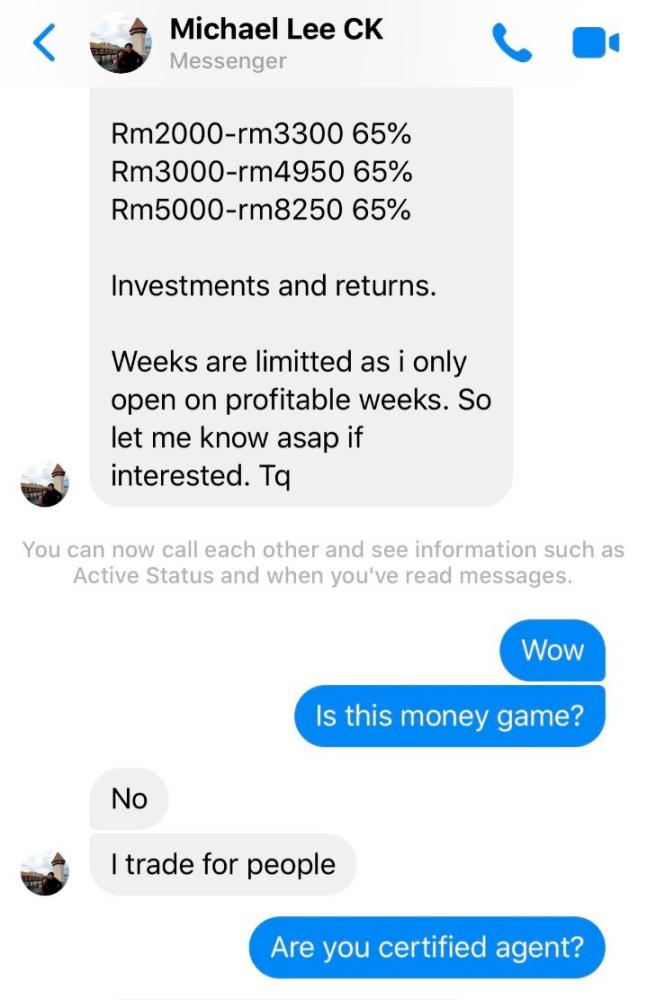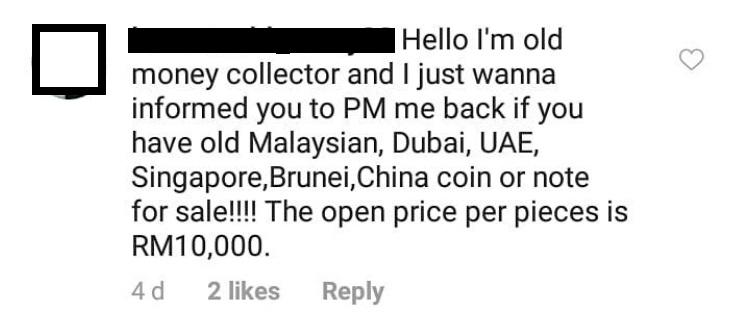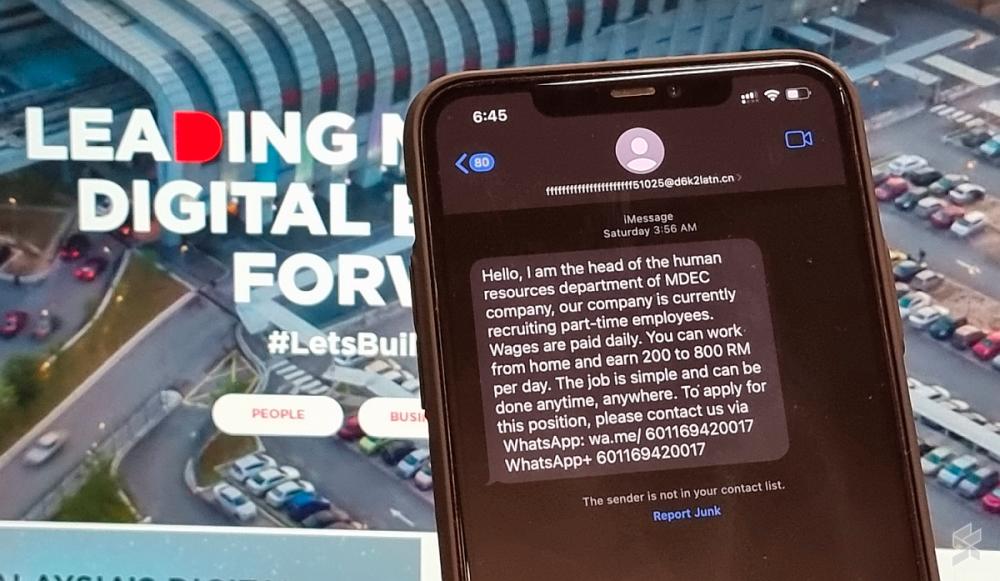THESE DAYS, we are able to connect with others around the world through social media platforms such as Twitter, Instagram, and Facebook, as technology is always evolving to be more connected than ever.
But for every positive aspect of technology, there are occasionally undesirable ones and for this social media-themed issue, we want to talk about scammers.
As much as we work hard for our money, scammers hustle very hard to fool us too. These con artists find their gullible victims through a range of methods, most notably through social media.
We’ve compiled a list of Malaysia’s most common social media scams below:
Phishing Scams
Most social media frauds involve this phishing method. Phishing is a cyberattack in which scammers imitate reputable organisations or individuals using email, text, direct messages, ads, or other ways to trick victims into exposing important information.
These impostors will say you’ve won a prize or giveaway, then send a malicious URL link that may lead to a fake landing page for ransomware or malware, or even request personal information.
Tips: Scam accounts on social media are typically private, unverified, and not followed by the official account they claim to be linked with. Discard suspicious emails. Do not click links or reveal any personal information before verifying the identities of businesses, organisations, or people.

Investment Scams
To be on the safe side, avoid investing in anything that seems too good to be true. Genuine investments do not come with return guarantees unless you invest in a fixed deposit or an endowment insurance policy. They won’t offer immediate profits and unrealistic returns.
Tips: Always do a background check on the company before investing in it. Remember the quote: “Money, business, and life success require time. Discipline and hard work build wealth.” Don’t believe in fast money.

Love Scams (Catfishing)
Beware of online relationships. Some scammers interact with their victims for weeks or months. After gaining a victim’s trust, internet dating scammers may propose a profitable business opportunity, asking for a hefty upfront payment.
The con artist claims to have delivered the victim a package containing expensive items from abroad. The con artist then simulates a situation in which the package is on hold. To release the package, another accomplice posing as a customs official would be asked to deposit cash.
Tips: Run a background search on the individual using various internet resources (try LinkedIn or even Google). Be aware of anyone who wants to rush into a relationship with you or requests your personal information as soon as you communicate with them.

Impostor Cash Grabs
Today, heists are fairly prevalent. Scammers employ this strategy in which they create a false account using the profile photo and username of a person you know, and then begin to direct message you to request quick cash due to “an emergency” while posing as your friend or family member.
Tips: Contact your friends right away. Consider why this person would register a new account to request aid when they could simply use their phone.

Old Coin Collectors
These are typically found in the comments section of social media posts with high interest, such as those of celebrities. They will usually offer to buy the old coins and notes for a large amount of money.
After that, the victim’s bank account details will be required in order to make the payment electronically. When the victim is notified that the account has been credited, the scammers will tell them the funds are blocked.
The victim would subsequently be contacted by someone posing as a representative of Bank Negara or Malaysian Customs, informing them of an “offense” and that they need to pay fines, taxes and insurance, among other expenses.
Tips: It’s a common saying that you can tell a lot about a person by how they interact with you. If you’re serious about getting rid of your old coins and banknotes, look for trustworthy purchasers in a collectors’ community group on social media, such as Facebook.

Fake WFH Jobs
Home-based income generation has always been desirable, and scammers are aware of this. Therefore, advertisements promising a high reward while allowing you the flexibility to work from home are one of the most prevalent types of fraud.
By requiring you to pay fees for enrollment, training, or worthless credentials, these scams attempt to obtain your financial information.
Also, these type of con artists will eventually add you to a WhatsApp group and require you to follow their instructions. Your bank information will be requested, real money will be transferred, and you will be instructed to purchase products on the Internet for two or three times the amount of money you received.
Tips: Always verify the authenticity of a recruiter’s or employer’s social media account before accepting a job offer. Avoid a money-making opportunity that demands less effort.
What to do if you were scammed?
If you sense that you may have just been scammed, you might attempt to call the bank or credit card company from which the transactions originated. Additionally, you must file a police report and, if applicable, a second report to Bank Negara Malaysia.
Bank Negara encourages victims to maintain records of all financial transactions and the contact information for all parties involved. This information could be useful if you wish to pursue legal action against a firm, or if you want to assist law enforcement with their investigations.














